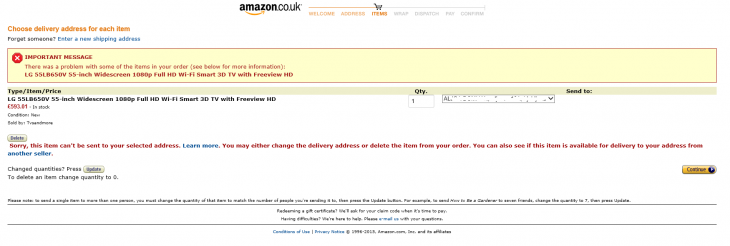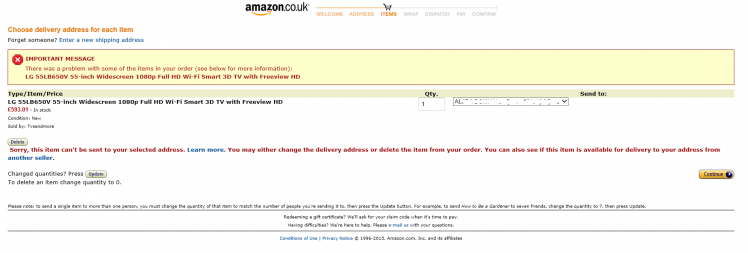Googlewise
Just as I was about to plant some raspberries, I turned to Google to find out when and how to do it. I love Google being able to understand questions such as When to plant raspberries? or When was George Washington born? or What is the capital of Moldova? Believe it or not, the programme for analyzing customer journeys to enaA.com also reveals very long questions. Several months ago, a customer entered the following query into Google: “Which LED TV set for less than €400 is best for kids and a living room of 5 x 4 metres?” Of course, Google knows that such TV sets are also featured on www.enaA.com, so the customer was referred to us.
But, is Google truly the tool or invention that will take the entire human race to the next level? This reminded me (without having to resort to Google to look it up) of an ancient story that was written around 400 BC. And yes, I would have to google the exact date.
Today, we tend to forget that in the beginning letters and words were not written down. Plato, through a dialogue between Socrates and Phaedrus, tells the legend of Thamus (alias Amun, Amun-Ra etc.), the ancient Egyptian king of gods, taking place at a time when people started to use writing.
At one time Thamus was host to the god Toth who was one of the most important Egyptian gods and the initiator of science and art, the inventor of numbers, mathematics, astronomy, astrology, geometry, botany, theology, medicine and writing. Toth boasted that writing would make the Egyptians wiser and give them better memories. Thamus replied: “The inventor is not always the best judge of his own inventions. Those using your invention will no longer train their memory and will become forgetful. They will put their trust in written sources when they want to retrieve information, and not to their memory. Your people will possess wisdom kept in records, and not their own wisdom. In time, there will be more and more records without any criteria or instructions. Rather than an advantage, such wisdom will become a burden. Instead of growing wiser, they will grow increasingly ignorant, instead of their memory becoming alive, they will neglect it and become forgetful.”
Let’s imagine Larry Page and Sergey Brin paying a visit to Thamus today. They would say how they had found a way to organize all the information in the world and make it available and useful to the whole world. They would conclude that from now on everyone can know everything.
Yet Thamus would reply: “Those who use your invention will no longer accumulate knowledge and will therefore know less and less. When they are curious about something, they will google it. They will boast about the knowledge that is stored on the world-wide web, and not what they themselves know to be true. In time, more and more knowledge will be at their fingertips without any criteria or instructions. Rather than an advantage, such knowledge will be a burden.”
Writing enabled mankind to evolve. So did the internet and Google, but don’t take everything that is written too literally! Let me just remind you of the copy-paste doctoral and masters theses, and the ease some people talk about things they know nothing about, apart from knowing that they are trending, not to mention politics. This is knowledge without criteria and instructions. This is boasting using someone else’s knowledge. Technology alone is therefore not enough to take us to the next level.
The Myth of the Borderless European Digital Market
So I buy a subscription to my favourite TV channel, drive to the seaside… and realise my subscription doesn’t work there. The seaside is in another EU country, my computer connects to a different Internet service provider there and the copyrights I have bought are only valid in Slovenia.
If I go for a vacation to Croatia (which, by the way, has the nicest seaside in the EU http://croatia.hr/en-GB/Homepage), this does not mean that I am interested in their local commercials for cars and offers for smart phones with subscriptions. If I was interested in any commercials on my vacation, it would be commercials from the country where I spend most of my time and spend most of my money. I am certain that advertising agencies understand this. Unfortunately, it seems that those who write regulations and draw up copyright contracts do not. From the user’s point of view, the whole thing is rather stupid, but in reality, there is much more to it. What it means is a breach of my basic right to use what I have bought anywhere and anytime I want.
Europe (whatever this means these days) promises the following on this page http://europa.eu/pol/singl/index_sl.htm (and not only on this page), and I quote: “In the EU’s single market (sometimes also called the ‘internal market’) people, goods, services, and money can move around the EU as freely as they do within a single country – instead of being obstructed by national borders and barriers as they were in the past. EU citizens can now study, live, shop, work and retire in any EU country. Or we can stay at home and enjoy a vast array of products from all over Europe.”
Sending Goods to Africa Is Cheaper than Sending Goods to Slovenia
Well, of course. You can sit down at a computer anywhere in the EU, browse online shops and buy a thing or two. Oh, but wait, here comes the catch: you soon realise that if you buy a book from Amazon.com, the cost of delivering the same book to the Italian side of the town, called Gorizia, is at least 20 percent lower than delivering the book to the Slovenian side of the same town, called Nova Gorica. If you look at http://www.amazon.co.uk/gp/help/customer/display.html?nodeId=11072981, you will also see that Amazon UK charges lower delivery costs for delivering the same book to South Africa than to Slovenia.
Even worse is the feeling when a Finnish server rejects you and states: “No, we do not sell to your country, this product is available only for us, the Germans, the Italians, the French and the English.” Even the largest and most modern online store of all, amazon.com, refuses to sell a number of things to Slovenia. But they only tell you this at the very end of the purchasing process:

You are, of course, welcome to order the product as poste restante to the neighbouring Italy or Austria. The reason for all of this is, for the most part, not knowing consumer rights in individual countries and the connected risks.
When, finally, you realise that the delivery cost from an online store in Klagenfurt (Austria) to Ljubljana (Slovenia) is several times higher than the delivery cost from Lendava (Slovenia), which is quite a few more kilometres further to the east, you really have to ask yourself where is this mythological single internal market whose benefits I am supposed to fully enjoy as a citizen of an EU country. How come that not all consumers from EU countries enjoy the same consumer rights? The borders have been down for a number of years. Why am I being discriminated as a consumer from Slovenia?
The European politicians claim that the development of a single digital market is one of the most important generators of European economic growth. Within this framework, in 2013 they implemented the regulation on website cookies which has not increased the volume of European online sales, nor has it improved consumer experience. Cross-border online sales account for only 14 percent of online sales, while the European consumers happily shop in non-European online shops.
The New “Cookies”
In Brussels, they have been setting up an extensive legislative reform which is supposed to make the matters even more complicated in the next two years, defining (among other things) what is and what is not allowed in terms of e-marketing. By doing so, the EU aims to place an additional burden on the EU retailers, whilst enabling unfair competition of virtually all global providers on the EU market.
Just like in the case of cookies, one cannot get rid of the feeling that they do not have a clue about what they are doing. For example, Microsoft has revealed that every minute they block more than 10 million spam messages aimed at the e-mail addresses of their company. You cannot solve this with legislation.
A Single Digital Market
As of yet, when it comes to online and mobile sales and marketing, we can only follow the technological solutions of American companies. Making just a few clicks reveals that the story about the borderless single European (digital) market is a myth. The Americans have a single market with 300 million users, whilst in the EU we have 28 markets with around 500 million users.
To ensure a single European digital market, Jean-Claude Juncker and his team ought to ensure a single postal system, a single copyright system, equal rights as regards product warranties, consumer protection and other consumer rights, so that all consumers within the EU could really, finally, sell and buy under the same conditions. A market of 500 million people is the basis for starting to develop our own solutions and our own user experience, which should be supported with appropriate legislation. As things are at the moment, Europeans seem to be their own worst enemy.
Slovenska verzija http://aljosadomijan.com/bajka-o-velikem-digitalnem-evropskem-trgu/

